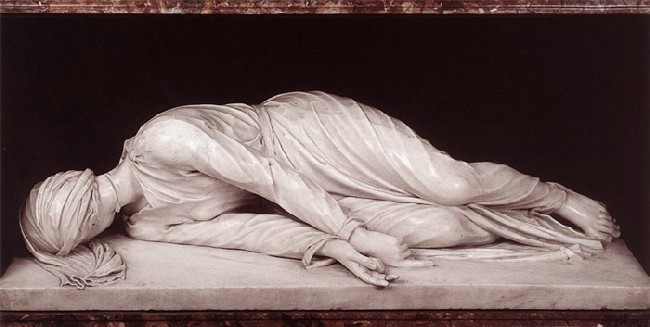
St. Benedict wrote a Rule for monks which is also used today by Benedictine oblates.
St. Benedict’s Rule gives a schedule for chanting all 150 Psalms during a week. But in that schedule St. Benedict actually had his monks reciting certain Psalms more than once each week.
I call these repeated Psalms St. Benedict’s favorite Psalms because while he borrowed the Psalm patterns used in other monastic rules and in the Church practices (the Lauds (meaning praise) Psalms are a good example), he also modified those lists to fit his own plan.
In a freedom common with St. Benedict’s famous Rule he adds at the end of his detailed Psalm schedule that if anyone does not like his Psalm arrangement, they should rearrange the Psalms as they see fit, provided that all 150 Psalms are chanted every week.
What are the Psalms that St. Benedict’s Rule has his monks chanting more than once a week? I like to think they were his favorites and perhaps because they were also the favorites throughout the Church and monastic communities since antiquity.
St. Benedict’s 19 “Favorite” Psalms
BACKGROUND INFORMATION:
Psalm 3 at Vigils each day(1)
Psalm 94(95) at Vigils each day(1)
Psalm 66(67) at Lauds each day
Psalm 50(51)at Lauds each day
Psalm 148 at Lauds each day
Psalm 149 at Lauds each day
Psalm 150 at Lauds each day
Psalm 119(120) at Terce Tuesday through Saturday
Psalm 120(121) at Terce Tuesday through Saturday
Psalm 121(122) at Terce Tuesday through Saturday
Psalm 122(123) at Sext Tuesday through Saturday
Psalm 123(124) at Sext Tuesday through Saturday
Psalm 124(125) at Sext Tuesday through Saturday
Psalm 125(126) at None Tuesday through Saturday
Psalm 126(127) at None Tuesday through Saturday
Psalm 127(128) at None Tuesday through Saturday
Psalm 4 at Compline each day
Psalm 90(91) at Compline each day
Psalm 133(134) at Compline each day
St. Benedict of Nursia, Italy. Born at Nursia, c. 480 AD; died at Monte Cassino, Italy, 543 AD is the father of western monasticism and one of the several copatron saints of Europe.
We know about St. Benedict primarily from his famous Rule which is a set of principles and regulations for how monks should live in a monastery under the spiritual guidance of an abbot.
A major part of Benedictine monastic spirituality is praying, reading, or singing the divine office which is psalms, hymns, Bible verses, and prayers said at fixed times throughout the day.
The central part of each daily office is the psalms recited for that office. The virtually universal monastic practice in the early Christian church was to recite all 150 psalms during each week. St. Benedict continued this practice of praying the 150 Psalms when he complied his Rule for monks which became the most widely used Rule in Western Christianity and still is today.
__________________________
Footnotes:
(1) Chanting these Psalms also on Sundays is inferred from the weekday plan.
Picture is cohdra_100_4397.JPG by cohdra and is used subject to license
If I made any errors in the list, please post a comment with the correct information. Also any other observations about how St. Benedict arranged the Psalms would also be welcomed. I used Benedict Saint, RB 1980 the rule of St. Benedict in Latin and English with notes (Collegeville, Minn: Liturgical Press, 1981) 390









I already knew about the Compline psalms (the Episcopal Book of Common Prayer's service is virtually identical to yours) but had been unclear about the other fixed psalms. Thanks for the enlightenment.
ReplyDeleteThanks Joe for the comment. I wonder if the people who arranged the divine office knew that far into the future we would be following their ideas of what would make a good psalm for these times of the day.
ReplyDelete